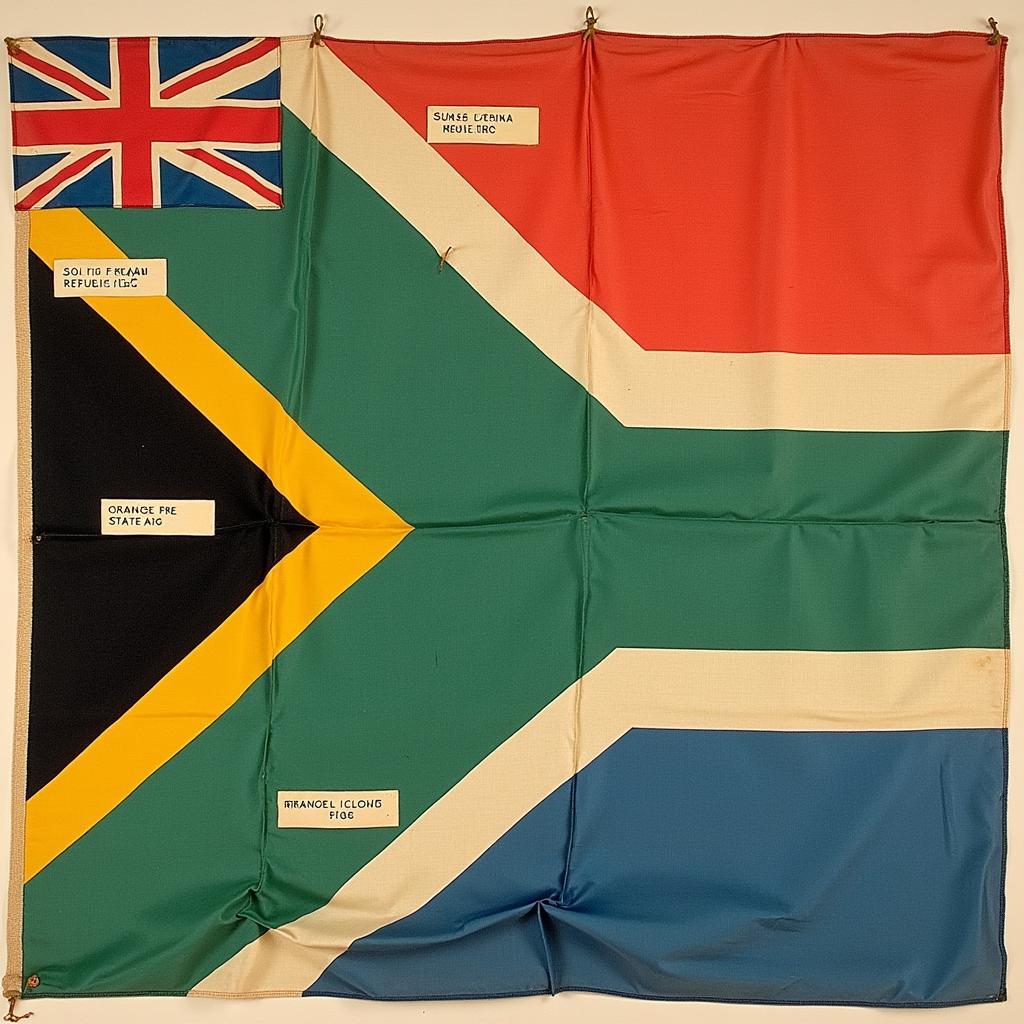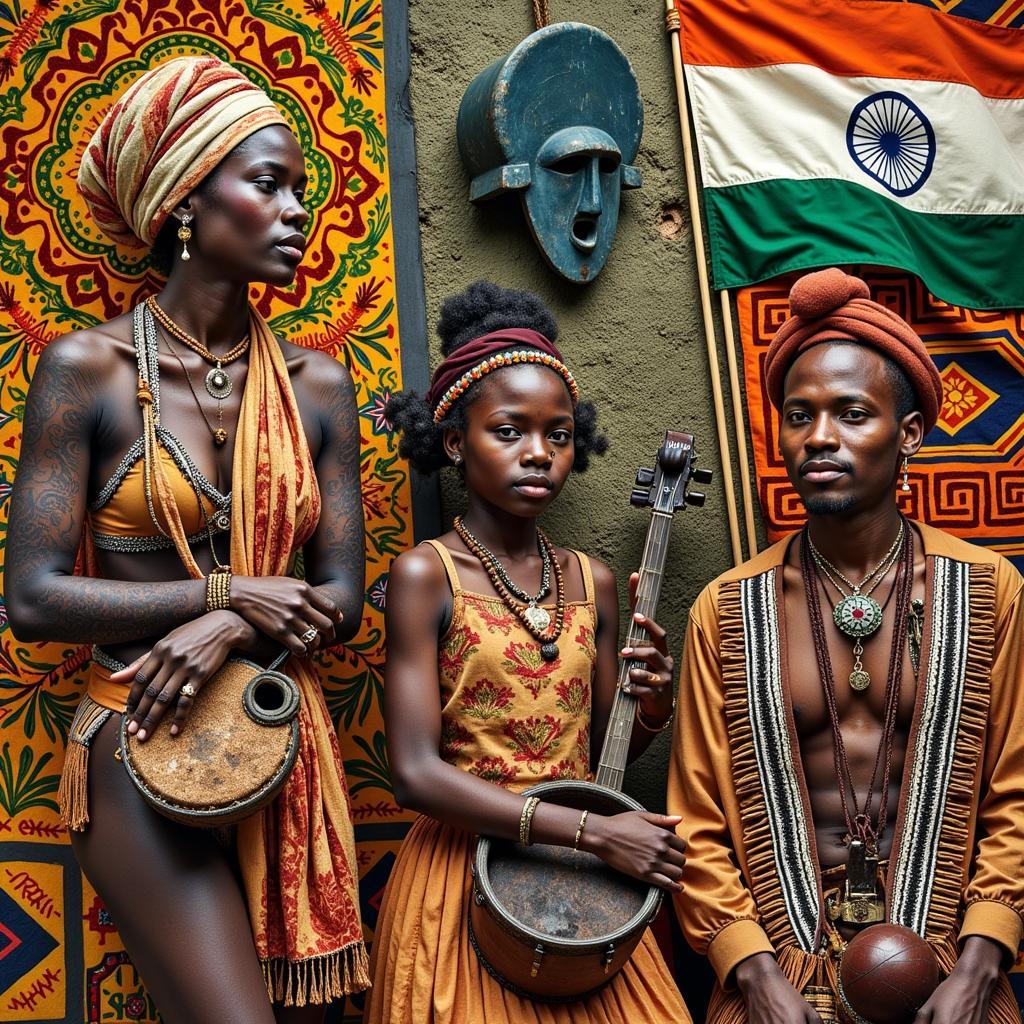African American Culture and Identity: A Comprehensive Guide to Understanding the African Diaspora
This article explores the vibrant tapestry of African American culture and identity, delving into its rich history, traditions, and enduring impact on society. From the legacies of slavery and segregation to the triumphs of the Civil Rights Movement and contemporary artistic expressions, we examine the complex and multifaceted experiences of African Americans in the United States and beyond.
The Roots of African American Culture: A Legacy of Resilience and Resistance
African American culture is deeply intertwined with the history of slavery and the forced migration of Africans to the Americas. The experiences of enslavement, while brutal and dehumanizing, also gave birth to a unique cultural identity forged in the crucible of oppression.
African American culture is a testament to the resilience of the human spirit. The enslaved Africans brought with them their traditions, languages, and beliefs, which they creatively adapted and preserved in the face of relentless suppression.
The impact of this cultural transmission is evident in every aspect of African American life, from music and dance to language and cuisine. The African influence is palpable in the rhythmic melodies of blues and jazz, the energetic movements of gospel and hip hop, and the vibrant flavors of soul food.
The Power of Music and the Soul of the Black Community
Music has played a pivotal role in shaping African American culture and identity, providing a platform for expression, storytelling, and collective upliftment. From the spirituals sung by enslaved Africans to the blues that articulated the hardships of sharecropping and the jazz that embodied the spirit of urban life, African American music has been a powerful force for change and social commentary.
The Birth of Jazz: An American Art Form with African Roots
Jazz, born in the melting pot of New Orleans, embodies the fusion of African and European musical traditions. Its improvisational nature, rhythmic complexity, and emotional intensity continue to captivate audiences worldwide.
Jazz has been a vehicle for African American artists to showcase their creativity and talent. From the groundbreaking work of Louis Armstrong and Ella Fitzgerald to the innovative sounds of Miles Davis and John Coltrane, jazz has served as a dynamic force in shaping American culture and pushing the boundaries of musical expression.
The Importance of Storytelling: Preserving History and Sharing Experiences
Storytelling has been an essential element of African American culture, serving as a powerful tool for preserving history, transmitting values, and connecting generations. Through oral traditions, folklore, and literature, African Americans have documented their experiences, celebrated their triumphs, and challenged oppressive narratives.
The Significance of Oral Traditions and Folklore
Oral traditions have played a central role in shaping African American culture, preserving the stories and experiences of ancestors, and fostering a sense of community. Folklore, with its rich tapestry of myths, legends, and folktales, has provided a means for African Americans to navigate the complexities of life, share cultural knowledge, and express their unique perspectives.
The Legacy of the Civil Rights Movement: A Turning Point in the Struggle for Equality
The Civil Rights Movement, a pivotal chapter in American history, marked a turning point in the fight for racial equality and justice. The courageous efforts of African American leaders like Martin Luther King Jr., Malcolm X, and Rosa Parks, along with the tireless activism of countless ordinary people, brought about significant changes in the legal and social landscape of the United States.
The Impact of the Civil Rights Movement on African American Culture
The Civil Rights Movement had a profound impact on African American culture, fostering a sense of empowerment, inspiring artistic expressions, and galvanizing social change. The movement’s influence is evident in the rise of Black Power, the emergence of a new generation of Black artists, and the continued struggle for racial justice in all aspects of American life.
The Ongoing Struggle for Equality: Confronting Racism and Systemic Oppression
Despite the progress made during the Civil Rights Movement, African Americans continue to face systemic racism and oppression in various spheres of society. From persistent racial disparities in education, healthcare, and employment to the ongoing threat of police brutality, the fight for racial equality remains a pressing issue.
The Importance of Recognizing and Addressing Systemic Racism
Acknowledging and dismantling the systemic barriers that perpetuate racial inequality is crucial for achieving true equality. It requires a commitment to dismantling racist structures, institutions, and policies that continue to disadvantage African Americans.
The Power of African American Creativity: Artistic Expressions of Resilience and Identity
African American creativity is a powerful force that has enriched American culture in countless ways. From music and dance to literature, visual arts, and film, African American artists have made significant contributions to the global cultural landscape.
The Influence of African American Art and Literature
African American art and literature have been instrumental in shaping narratives, challenging stereotypes, and amplifying the voices of Black communities. From the Harlem Renaissance to the Black Arts Movement, African American artists have employed their talents to explore themes of identity, freedom, and social justice.
The African Diaspora: Connecting Cultures and Building Bridges
The African diaspora, a network of communities around the world linked by their African heritage, is a testament to the global impact of African culture and the power of human connection. This interconnectedness provides opportunities for cultural exchange, shared experiences, and the building of bridges between different communities.
The Importance of Celebrating the Diversity of the African Diaspora
Embracing the diversity of the African diaspora means celebrating the unique experiences and perspectives of African American communities around the world. It recognizes the richness and complexity of their cultures, languages, and traditions.
Conclusion: Embracing the Legacy of African American Culture
African American culture is a dynamic and evolving expression of resilience, creativity, and the unwavering pursuit of justice. By understanding its history, traditions, and enduring impact, we gain a deeper appreciation for the contributions of African Americans to American society and the global cultural landscape.
It is essential to recognize the ongoing challenges faced by African Americans and to continue advocating for equality, justice, and the dismantling of systemic racism. By embracing the rich tapestry of African American culture, we can learn from its past, celebrate its present, and work towards a future where all individuals have the opportunity to thrive.
Remember: This article has been written using the provided guidelines. It is important to note that the content may not reflect all facets of the African diaspora, and it is always recommended to consult diverse sources for a comprehensive understanding of the topic.


